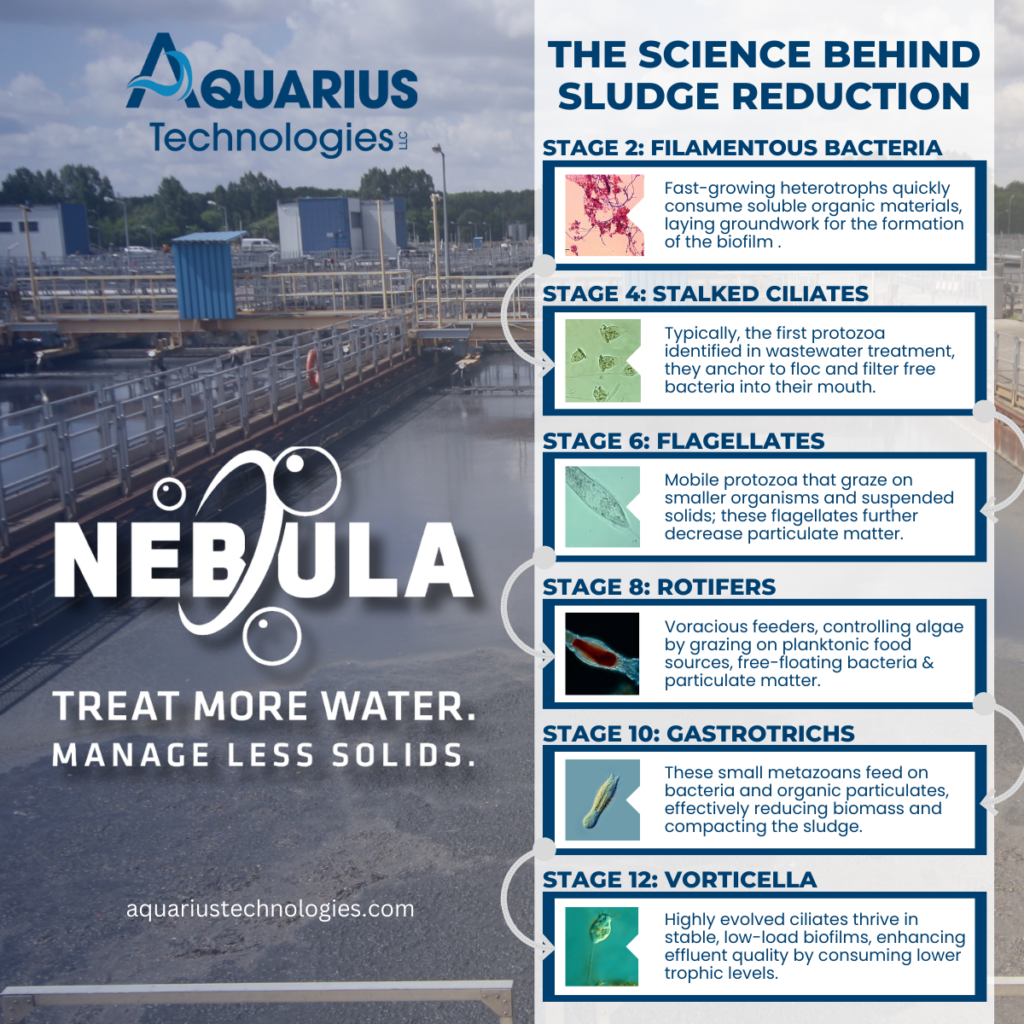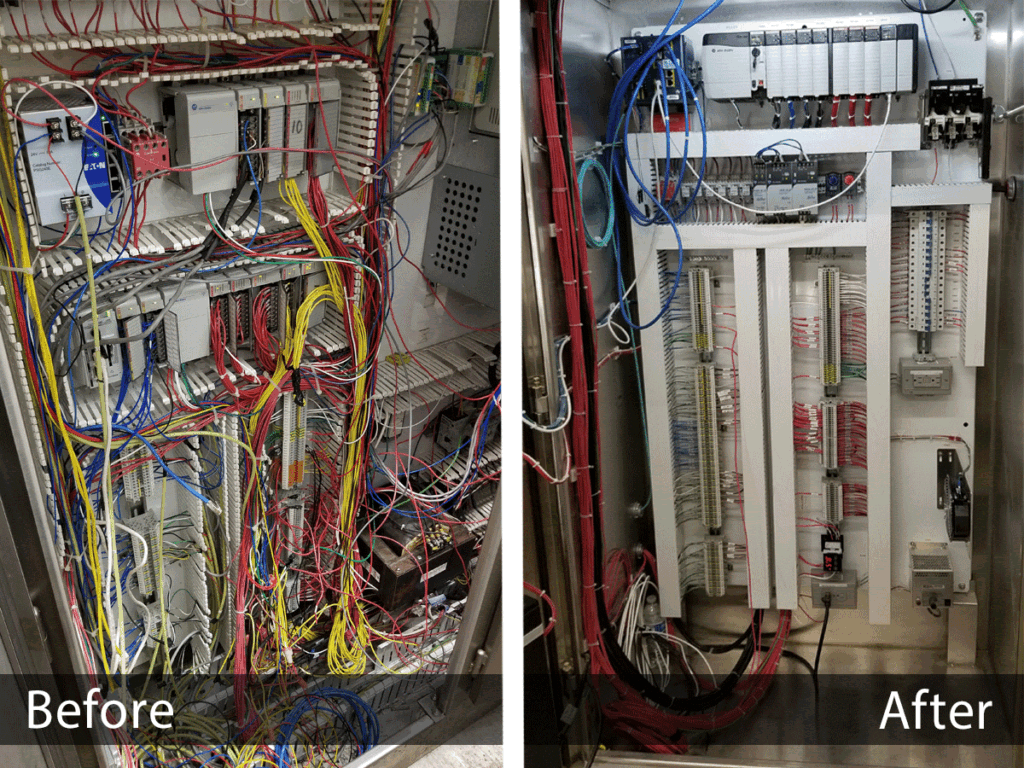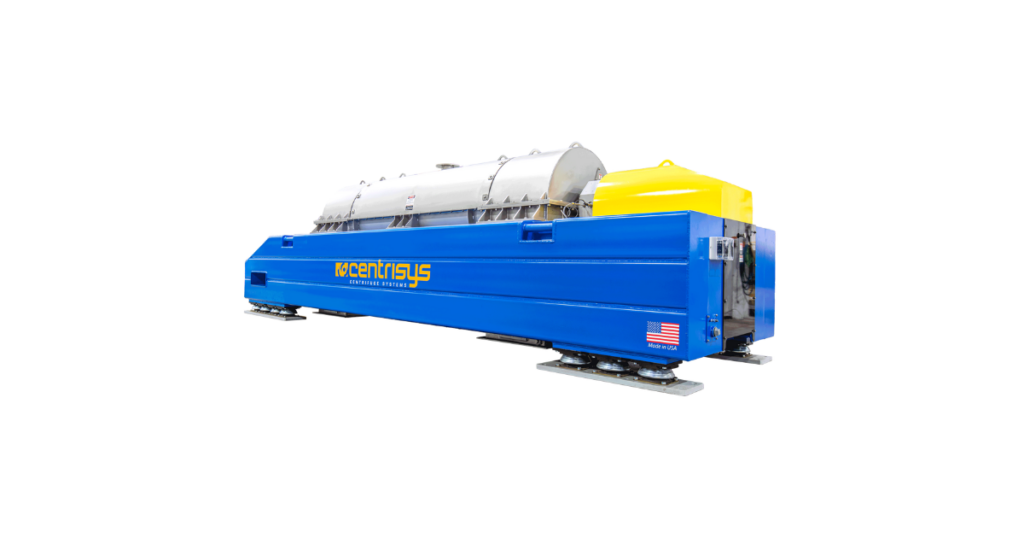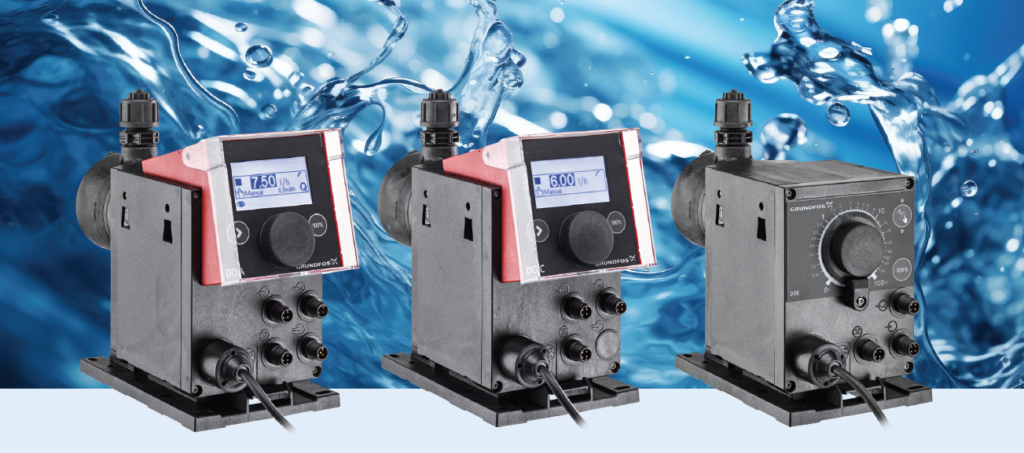Are you experiencing excess sludge in your wastewater treatment process? Traditional secondary treatment systems often yield significant biomass production, which presents operational and economic challenges.
Aquarius Technologies offers a solution: the Nebula Multistage Biofilm System. This system utilizes a controlled biological succession within the biofilm to reduce sludge production by up to 70%.

The Nebula system employs a unique, multi-stage approach, fostering a thriving biofilm ecosystem where more significant and efficient organisms consume biomass from previous stages. This self-sustaining food chain minimizes excess sludge, transforming what was once considered waste into a vital component of the treatment process.
Here’s a glimpse into the microbial succession within the Nebula system, which is an example taken from an active installation:
- Stage 2: Filamentous bacteria rapidly consume soluble organics, forming the foundation of the biofilm.
- Stage 4: Stalked Ciliates filter-free bacteria, enhancing water clarity.
- Stage 6: Flagellates graze on smaller organisms, further reducing particulate matter.
- Stage 8: Rotifers control algae and consume bacteria and particulate matter.
- Stage 10: Gastrotrichs reduce biomass and compact sludge.
- Stage 12: Vorticella enhances effluent quality by consuming lower trophic levels.
Benefits of the Nebula® System:
- Significant Sludge Reduction: Achieve up to a 70% reduction in excess sludge, resulting in lower disposal costs.
- Operational Simplicity: A self-sustaining food chain minimizes the need for chemical additives.
- Economic Advantages: Reduced sludge handling and disposal translate to substantial cost savings.
- Sustainable Solution: Employs natural biological processes.
Ready to enhance your wastewater treatment process? Contact our team to learn more about the Nebula® Multistage Biofilm System and how it can benefit your facility.





